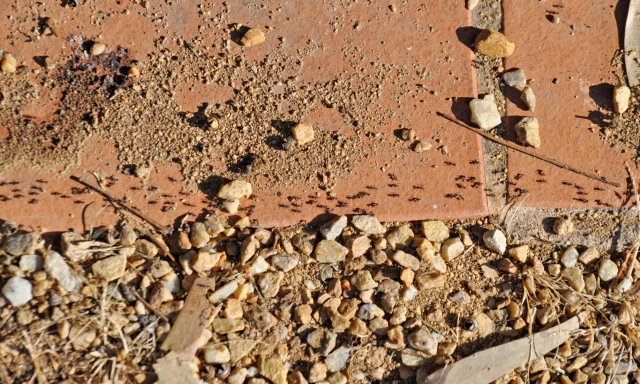What Ants Do in Autumn
Anyone that has, or has had, an ant infestation has probably noticed that ants are more active in warm weather, but they may pose more of a problem in autumn.
It is the summer months that most people report lots of ants or they see them very actively streaming around the garden. They will be actively feeding and producing new workers. Only in very hot conditions will ants ‘hide’ in the shade of their nest.
However, ants tend to move indoors to avoid cold, wet conditions and it is often autumn when the colder, wetter conditions occur following the warm summer when numbers in nests will have peaked and the ants move indoors to avoid the cold and the wet. So, it is common for more ant problems to occur in autumn, at least for short periods in a cold wet spell. The only good thing to note is that the influx does not usually last long because the ant numbers will drop when their activity slows in the cold and many nests may be flooded out by wet conditions.
So, to further reduce ant numbers and to install a barrier to them moving indoors, autumn is a good time to carry out the 1-2-3 Ant Control programme.
As the weather cools further at the end of autumn, some ant species, in cooler parts of New Zealand, will prepare for a sort of hibernation; they eat more than usual to fatten themselves and may store food in their crops or in their nest. Underground nests will stay at a more stable temperature than the air temperature and the ants may move deeper to take advantage of this and can survive when the outside temperatures dip well below zero. The ants survive on the food reserves and may slow their metabolism to reduce their need for foraging. Although peripheral workers may die of cold through the winter the colony/nest will survive if the queen/s and sufficient workers survive ‘til spring.
Nests in, or close to houses, may stay warm enough for ants to continue activity through the winter months and in warmer northern parts of New Zealand the temperatures may never get cold enough to send the ant colony into their ‘hibernation.’
David Brittain
Kiwicare


